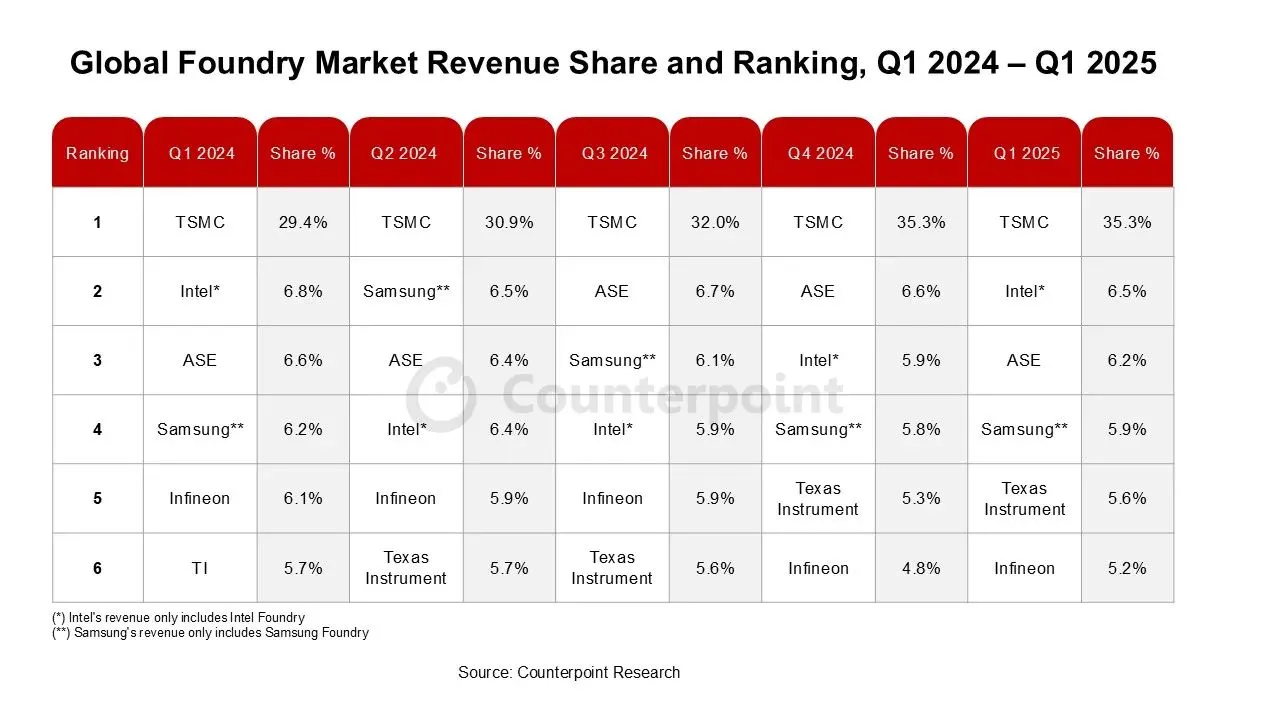For Intel, they have the means to make it an insurance.
From ChatGPT:
If China were to annex Taiwan—especially through military force—it would have significant, potentially catastrophic consequences for
TSMC (Taiwan Semiconductor Manufacturing Company) and the global semiconductor supply chain. The outcome would depend heavily on
how the annexation occurs. Here are some possible scenarios and their implications:
 1. Military Invasion Scenario
1. Military Invasion Scenario
If China uses military force:
 Physical Infrastructure Damage
Physical Infrastructure Damage
- TSMC’s fabs could be damaged or destroyed in conflict. Its most advanced nodes (e.g., N3 and beyond) are fabricated only in Taiwan.
- TSMC fabs are delicate and require continuous clean operations. Disruption, even without direct destruction, could render them non-functional.
 Talent Flight
Talent Flight
- TSMC’s success depends on its engineers and operational know-how, much of which could be lost if personnel flee or refuse to cooperate under new governance.
 U.S. and Allied Sabotage or Sanctions
U.S. and Allied Sabotage or Sanctions
- The U.S. could sanction or block equipment, materials, and software updates—crippling TSMC.
- Some analysts and policymakers have even discussed pre-emptive disabling of TSMC tools (e.g., ASML lithography machines) in a worst-case scenario.
 Global Shock
Global Shock
- TSMC is the world’s most advanced chip foundry. Disruption would:
- Halt production for Apple, AMD, Nvidia, Qualcomm, etc.
- Freeze tech sectors globally (smartphones, AI, autos, servers).
- Cause a massive global recession in tech and manufacturing.
 2. Peaceful Political Takeover (Highly Unlikely)
2. Peaceful Political Takeover (Highly Unlikely)
If China achieves annexation with minimal resistance:
 Operations May Continue... with Risk
Operations May Continue... with Risk
- TSMC might technically continue operating.
- But the global trust in the integrity and neutrality of its supply chain would be shattered.
- Customers may seek alternative suppliers (e.g., Samsung, Intel Foundry, U.S./Japan-backed initiatives).
 Export Controls & IP Restrictions
Export Controls & IP Restrictions
- The U.S. and allies would likely tighten export controls on EDA tools, extreme ultraviolet (EUV) lithography, and materials.
- TSMC’s ability to maintain leading-edge process nodes would degrade over time without access to Western tech.
 3. Strategic Relocation (in progress)
3. Strategic Relocation (in progress)
- TSMC is diversifying with fabs in:
- Arizona, USA (N4 and N3 lines, mid/late 2020s)
- Japan (28nm, 12/16nm and possibly N2 later)
- Germany (under planning)
- But these cannot replace the full capacity or capability of Taiwan-based fabs—yet.
 In Summary
In Summary
[table]
[TR]
[TH]Scenario[/TH]
[TH]Impact on TSMC[/TH]
[TH]Global Consequences[/TH]
[/TR]
[TR]
[TD]Military invasion[/TD]
[TD]Likely catastrophic[/TD]
[TD]Severe semiconductor shortage, economic shock[/TD]
[/TR]
[TR]
[TD]Peaceful annexation[/TD]
[TD]Operations may persist, but under pressure[/TD]
[TD]Loss of trust, strategic decoupling[/TD]
[/TR]
[TR]
[TD]Strategic relocation[/TD]
[TD]Helps mitigate risks[/TD]
[TD]Long-term resilience, not short-term protection[/TD]
[/TR]
[/table]
Let me know if you'd like a deeper dive into specific aspects (e.g., U.S. military or economic policy, tech supply chain impact, or how companies like Apple or Nvidia would be affected).

 www.oregonlive.com
www.oregonlive.com


